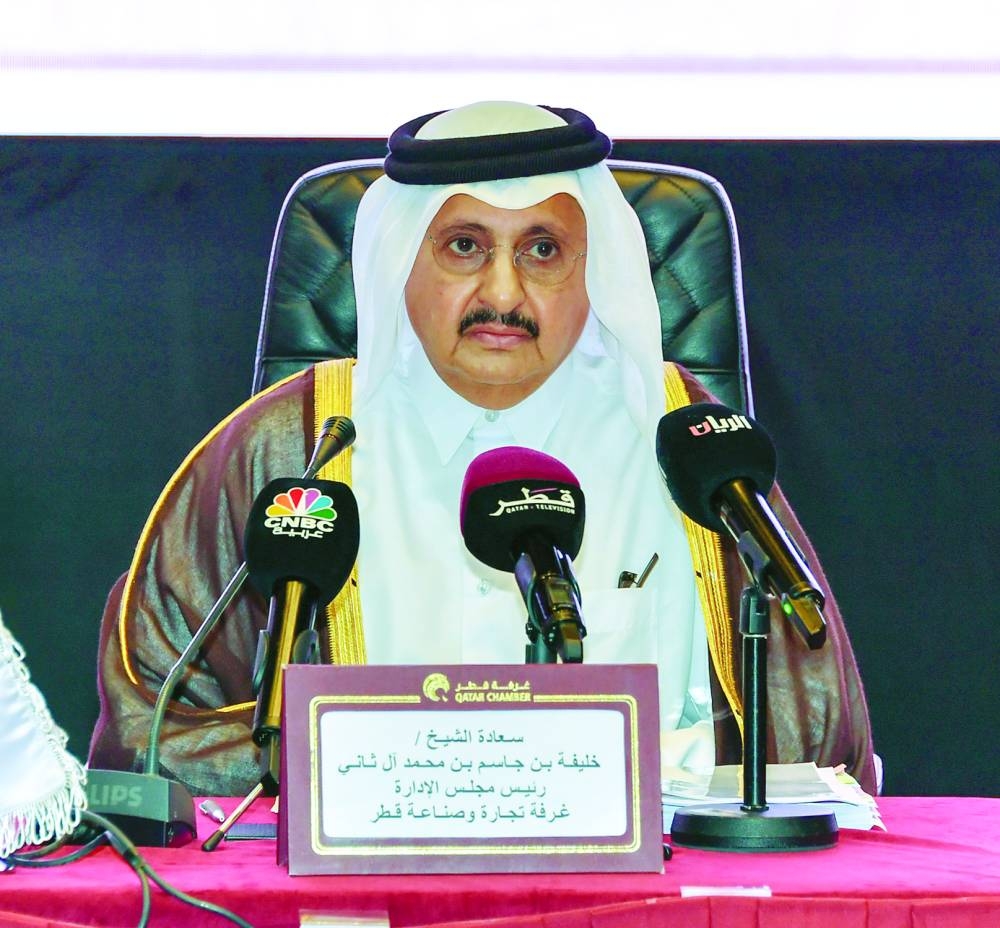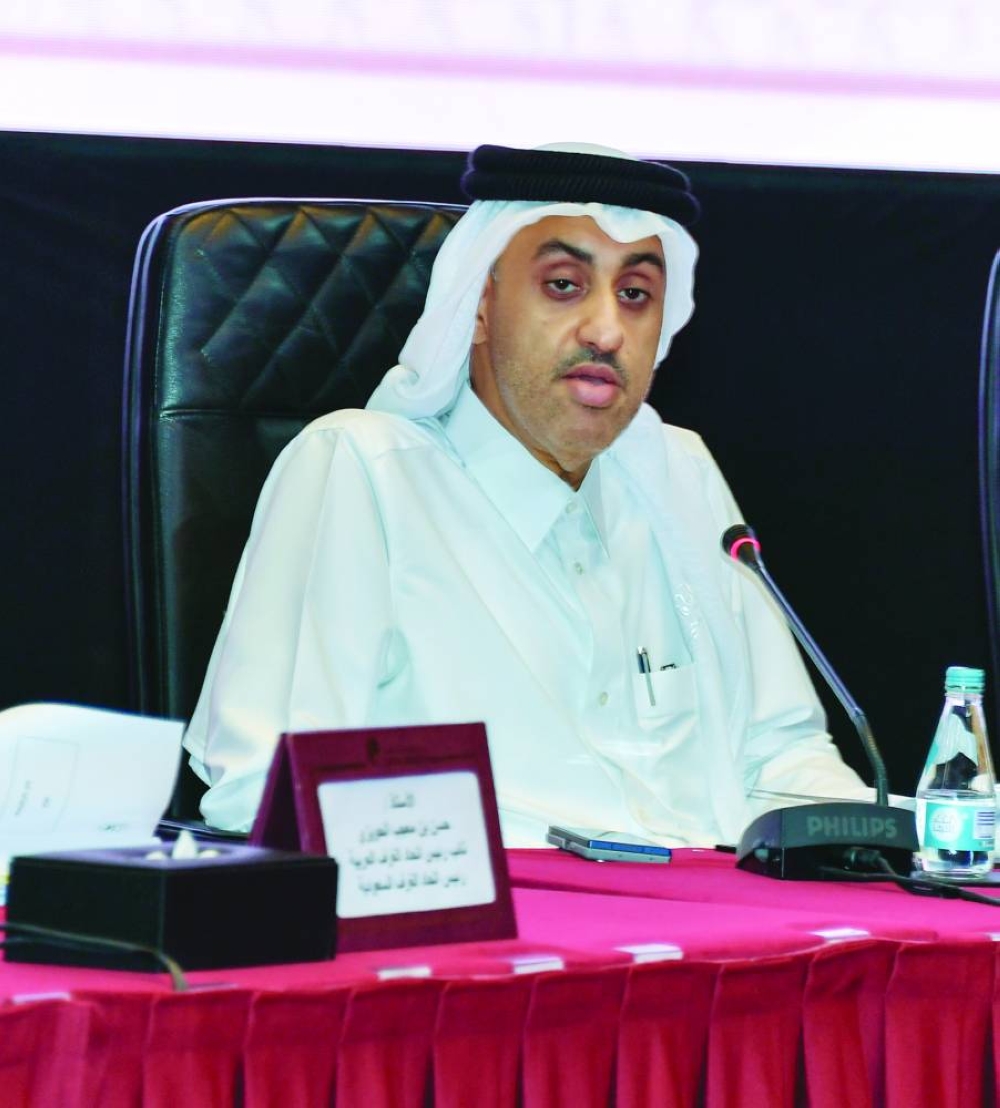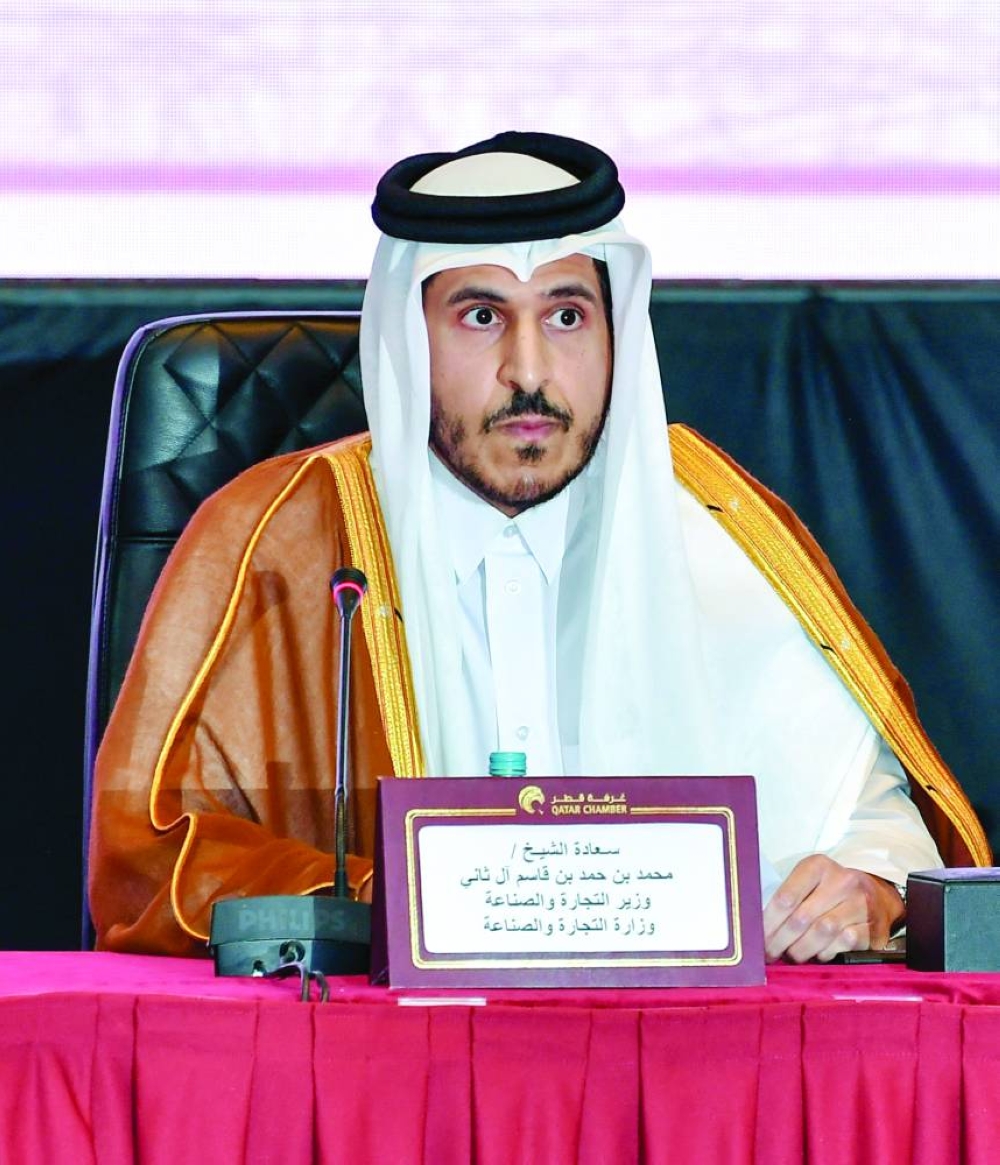Qatar Chamber hosted the 135th Session of the Council of the Union of Arab Chambers on Sunday in the presence of HE the Minister of Commerce and Industry Sheikh Mohamed bin Hamad bin Qassim al-Thani.
The meeting was attended by Qatar Chamber chairman Sheikh Khalifa bin Jassim al-Thani; ambassador Dr Ali bin Ibrahim al-Malki, assistant secretary-general and head of the Economic Affairs Sector of the League of Arab States; Samir Abdulla Nass, chairman of the Bahrain Chamber and president of the Union in its outgoing session; and Samir Majoul, president of the Tunisian Union of Industry and Commerce and president of the Union in its current session.
HE Sheikh Mohamed underscored the importance of developing cooperation between business sectors of the Arab world, activating and upgrading the Arab private sector for the advantage of Arab economies, and the efforts to achieve Arab economic integration.
The minister also noted that the Arab region enjoys enormous potential, abundant wealth, diverse natural resources, and advanced human potential, assuring that these resources qualify the Arab world to occupy a prominent position on the global economy map.
Sheikh Mohamed lauded the tireless efforts made by Arab leaders to capitalise on these resources to achieve Arab economic integration, achieve sustainable development, and fight poverty and unemployment, which will bear fruit through flexible economic policies in which the private sector plays a leading role.
“The Arab region offers plenty of promising investment opportunities in various fields, especially in light of the existence of leading economic laws and Arab free zones, which provides greater opportunities to promote economic integration, activate intra-Arab trade, and create a sustainable and diversified Arab economy,” he said.
The minister underscored the Arab private sector’s role in the development process, especially through the development of more flexible and effective economic policies, and through greater co-ordination and cooperation between the chambers in the Arab countries.
He reiterated that Qatar welcomes all initiatives and programmes that support and strengthen the Arab private sector position in the economic arena and enable it to perform its expected role by enhancing the partnership between the public and private sectors.
Sheikh Mohamed also emphasised that the Qatari economy has experienced substantial growth in recent years, supported by the economic plans and strategies adopted by the State to create an attractive business environment for investments, pointing out that the major projects implemented ahead of the 2022 FIFA World Cup have contributed to accelerating the economic diversification plans under the Qatar National Vision 2030.
HE the minister said: “Qatar's Third National Development Strategy 2024-2030 aims to focus on priority sectors, such as the low-carbon minerals industry and renewable energy sources. The key sectors identified within this strategy offer promising opportunities, including industry, logistics, information technology, digital services, finance, food, agriculture, health, education, and other key sectors. To achieve these goals, investments amounting to QR100bn have been allocated to the local economy by 2030.”
For his part, al-Malki said Arab countries attach significant importance to the Arab private sector as a key pillar of economic and social development. He also highlighted its role in promoting joint Arab action, emphasising its potential to achieve economic surplus through mutual benefit and foster sustainable development.
Al-Malki underscored the impact of Arab economic integration and the Arab private sector’s role in contributing to joint Arab projects and meeting the needs of Arab civil society.
He stressed the importance of continuing the fruitful cooperation between the League of Arab States and the Union to support joint Arab economic and investment cooperation in light of providing new initiatives to stimulate Arab economies.
Sheikh Khalifa highlighted that the session of the union includes several important strategic issues, expressing confidence in the council’s ability to make appropriate decisions and take necessary actions on each issue, particularly those related to critical regional and international changes and challenges that impact our Arab economy.
He thanked HE Sheikh Mohamed for inaugurating the meeting, as well as Nass for his dedicated efforts and sincere work during his tenure as chairman of the union. Sheikh Khalifa congratulated Majoul on assuming the presidency of the current session, expressing confidence in his ability to continue the pace of achievements by the mechanisms and goals that the union seeks to achieve for the benefit of the Arab economy in general.
Furthermore, Sheikh Khalifa thanked the general secretariat, headed by Dr Khaled Hanafi, for its valuable efforts in developing the union and enhancing its activities while activating its role both regionally and internationally. He also praised the secretariat's role in proposing strategic topics and issues for the agenda of the union's council meetings, highlighting the significant efforts made in the interest of the Arab economy in general.
Sheikh Khalifa, on behalf of the Arab private sector, condemned and denounced all brutal massacres taking place in Gaza, the West Bank, and Lebanon by the Israeli occupation in the complete absence of the international community, which stands helpless and silent in the face of these crimes.
During the meeting, the union’s presidency was handed over from Bahrain to Tunisia, where Nass handed over the presidency for the current session to Majoul. Addressing the meeting, Majoul affirmed his confidence that Tunisia's presidency will be supportive and fruitful for joint Arab economic action and strengthening the role of the private sector at the Arab and international levels.
Majoul expressed hope that the union will continue to achieve the desired Arab economic integration and enhance the role of the private sector and Arab chambers in the economic landscape of the Arab world.

Qatar Chamber chairman Sheikh Khalifa bin Jassim al-Thani.

Ambassador Dr Ali bin Ibrahim al-Malki, assistant secretary-general and head of the Economic Affairs Sector of the League of Arab States.

HE the Minister of Commerce and Industry Sheikh Mohamed bin Hamad bin Qassim al-Thani.
